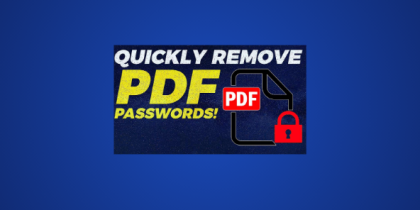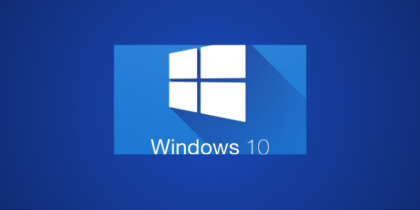If you’ve ever turned on your VPN and suddenly started seeing endless CAPTCHA boxes, you’re not alone. These puzzles appear when websites think your connection might be automated or suspicious, which often happens when you’re on a shared VPN IP. It’s frustrating, especially when you’re just trying to browse or log in safely.
In this guide, we’ll explain why VPNs trigger CAPTCHA challenges, why some sites mistake VPN users for bots, and how you can reduce those pop-ups while keeping your connection private and secure with a VPN. Let’s dive in:
What is a CAPTCHA challenge?
A CAPTCHA is a simple security check designed to stop bots from abusing websites. It usually appears as a checkbox, image puzzle, or short test to prove you’re human. CAPTCHAs help protect login pages, sign-ups, and payment forms from spam, brute force attacks, and automated data scraping.

When triggered, they block suspicious or unusually high-volume traffic until the user verifies themselves. While CAPTCHAs are essential for online security, they can become an annoyance for VPN users when sites can’t easily tell the difference between genuine encrypted traffic and automated bot activity.
Why do websites ask for CAPTCHA when I’m using a VPN?
Websites use CAPTCHAs to detect and stop automated or suspicious traffic, and VPN connections can sometimes look exactly like that. When you connect to a VPN, your traffic is routed through a shared IP address used by hundreds or even thousands of other users. If one of those users triggers spam filters, the entire IP range can be flagged as suspicious.
As a result, websites show CAPTCHAs more often to verify you’re human before granting access. This is particularly common with free or crowded VPN servers where IPs change frequently or have a history of misuse. Even reputable services like Google reCAPTCHA may show challenges repeatedly when VPN traffic patterns resemble those of bots or scrapers.
Why do some VPNs trigger payment fraud alerts?
Payment systems like PayPal or Stripe use fraud-detection algorithms that look for unusual behavior, and VPNs can unintentionally trip those alerts. When you connect to a VPN server in another city or country, your billing address, device, and IP location no longer match. That mismatch can look like someone else is trying to make a purchase from your account.
Here are a few common triggers:
- Location inconsistencies: Your payment attempt appears to come from a country different from your card’s registered address.
- Shared or flagged IPs: If a VPN IP was previously used for fraud, the system may automatically block it.
- Frequent server switching: Rapid IP changes can look like automated bot activity or account takeover attempts.
- High-risk IP ranges: Some data-center IPs are labeled “non-residential,” which payment platforms often treat with higher scrutiny.
Most fraud alerts caused by VPNs are temporary and don’t affect your account directly. They simply ask for identity verification to confirm you’re the legitimate user.
How to reduce CAPTCHA frequency while connected to a VPN
CAPTCHAs aren’t always avoidable, but you can reduce how often they appear by adjusting how you use your VPN. Here are a few effective methods:
Get a dedicated IP VPN
Shared IPs are the main reason VPN users encounter frequent CAPTCHA prompts. By choosing a VPN that offers dedicated IPs, you can get a unique address used only by you, helping sites recognize your traffic as stable and trustworthy over time. It’s ideal for users who often log into the same accounts or platforms.
Connect to less crowded or nearby servers
When too many users are connected to the same VPN server, CAPTCHAs trigger more frequently. Switching to a nearby or less congested location can help reduce traffic anomalies and improve IP reputation, leading to fewer verification prompts. However, avoid changing servers too often as it makes sites think your activity is automated.
Browse with a residential IP
Some sites automatically challenge IPs from commercial data centers because they’re linked to VPNs or proxies. By routing your traffic through residential IPs that belong to real ISPs, you can make your connection appear more natural, meaning you encounter fewer CAPTCHAs. Some VPNs even offer residential IPs as an add-on.
Clear browser cookies and cache regularly
Old cookies or mismatched session data can confuse websites and increase CAPTCHA triggers. Clearing cookies or using incognito mode ensures that your browser sessions match your current VPN IP. It also removes outdated identifiers tied to your previous IP or location, which helps sites treat your new connection as legitimate instead of suspicious.
Stay logged in when appropriate
If you trust the site, staying logged in can actually help reduce CAPTCHA prompts. Logged-in accounts provide stable behavioral and identity signals that most platforms treat as lower risk. It shows you’re a consistent user rather than a new or anonymous session connecting from a shared IP every time.
Use popular, up-to-date browsers
Browsers like Chrome, Firefox, and Safari follow modern web standards and send the expected security and fingerprint data that sites use to evaluate traffic. Outdated or uncommon browsers sometimes trigger CAPTCHAs as their signals don’t match normal usage patterns. Also, keep your browser updated for a consistent, trusted fingerprint.
Keep device security clean
Malware or intrusive browser extensions can inject scripts or modify network behavior, making your traffic look automated. Regularly scan your system, remove unnecessary extensions, and keep your OS updated. A clean device maintains a predictable browsing pattern that lowers the chance of false security flags and CAPTCHA interruptions.
Can you completely avoid CAPTCHAs?
No, you can’t completely avoid CAPTCHAs, and that’s by design. They’re meant to appear whenever a site detects traffic patterns it can’t confidently verify as human, whether that’s from bots, proxies, or even VPNs.
Since every site runs its own risk checks, there’s no universal way to bypass them entirely. Even legitimate, privacy-conscious users will face CAPTCHAs occasionally because it’s part of how the internet filters suspicious traffic.
Frequently asked questions
When you’re using a shared VPN IP, sites can’t easily distinguish your traffic from that of other users. To confirm whether it’s real human activity, they prompt a CAPTCHA before granting access.
Google’s reCAPTCHA relies on risk scoring based on IP reputation and behavior. Since many VPN users share the same IP, Google often flags it as suspicious and shows reCAPTCHA challenges more frequently.
You can’t remove them completely, but you can reduce their frequency by using a dedicated or residential IP, connecting to nearby or less crowded servers, and clearing browser cookies for a clean session.
Final word
CAPTCHAs don’t mean your VPN is faulty, they’re just part of web security. Shared IPs or inconsistent signals can trigger them. However, by following the measures discussed above, you can keep those prompts rare while staying private and secure online.








